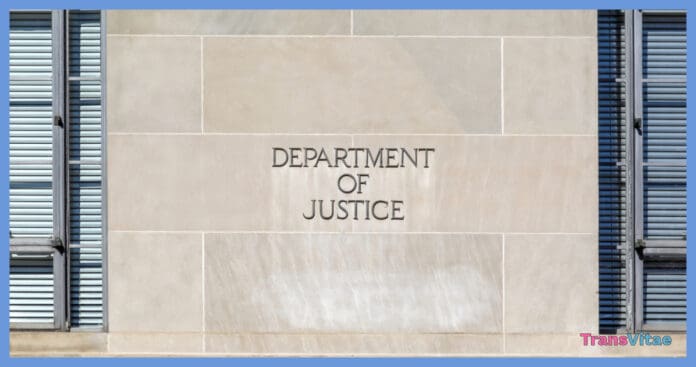In a revelation that casts a long shadow over the Utah Department of Corrections (UDOC), the Department of Justice (DOJ) has unearthed troubling evidence of discrimination against a transgender inmate. This incident not only shines a light on the systemic issues within correctional facilities regarding gender dysphoria but also emphasizes the fundamental need for equitable medical access.
Imagine being confined, not just by walls, but by a profound misalignment between your inner truth and the world’s perception of you.
This was the reality for a transgender woman incarcerated in Utah, who, despite being assigned male at birth, knew with every fiber of her being that she was female. However, the DOJ’s investigation showed that UDOC had a glaring lack of understanding and empathy for her situation.
The DOJ’s Findings: A Call for Humanity
The investigation unveiled a series of discriminatory practices that not only breached the Americans with Disabilities Act (ADA) but also exposed a shocking disregard for human dignity. Among the findings:
- Denied Essential Care: The refusal to provide hormone therapy—a lifeline for those grappling with gender dysphoria—underscores a cruel indifference to the inmate’s suffering.
- Hurdles for Hurdles’ Sake: The imposition of unnecessary barriers to treatment echoes a system more invested in bureaucracy than well-being.
- Safety Oversights: The belated approval of hormone therapy, marred by negligence in its administration, adds insult to injury.
- A Deaf Ear to Reason: Ignoring requests for gender-affirming modifications like female clothing or safer search protocols only deepened the sense of alienation and disregard.
The Ultimate Price
Tragically, the compounded effects of these injustices led the inmate to undertake a dangerous act of self-surgery. This desperate measure underscores a systemic failure to meet the healthcare needs of transgender individuals in custody.
A Path to Redemption
Kristen Clarke, from the Justice Department’s Civil Rights Division, emphasized that ADA protections extend to all, including the incarcerated. The outlined remedial measures for UDOC include:
- Ensuring Immediate and Safe Access to Hormone Therapy: A directive that acknowledges the urgency and importance of this care.
- Revamping Policies: An overhaul aimed at eliminating discriminatory practices and fostering a more inclusive environment.
- Empowering Through Education: Mandatory training on gender dysphoria awareness for staff, planting seeds of empathy and understanding.
The Bottom Line
This case serves as a sobering reminder of the disparities that still exist within our correctional system, urging us to reflect on the values of justice and equality we hold dear. It’s a call to arms for all stakeholders to champion the rights of every individual, pushing for a system that is not only just in name but in action.
In the face of adversity, the strength and resilience of the transgender community continue to inspire. As we report on this case, we stand in solidarity with those fighting for their right to be seen, heard, and respected. This is not just a story of discrimination; it’s a rallying cry for change, echoing across the halls of justice and into the heart of society.


